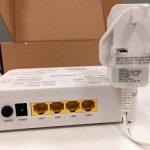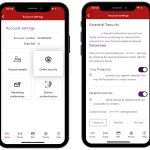Sponsored Links
UPDATE UK Government Pledges Superfast Broadband ISP Services for All by 2020
Posted: 22nd Mar, 2010 By: MarkJ
 The UK Prime Minister, Gordon Brown, has today pledged to make "super-fast" broadband services available to every home by 2020. The move goes one step further than Labour's first target of reaching 90% of the country with a "next generation broadband" network by 2017, which Brown calls "the electricity of the digital age".
The UK Prime Minister, Gordon Brown, has today pledged to make "super-fast" broadband services available to every home by 2020. The move goes one step further than Labour's first target of reaching 90% of the country with a "next generation broadband" network by 2017, which Brown calls "the electricity of the digital age".Labour currently has two schemes. The first sets aside £250m and aims to make minimum broadband speeds of 2Mbps available to everybody in the country by 2012 (USC). The second proposes to put a new 50p +vat per month tax on all fixed phone lines in the country, earning £175m per year. This would fund the rollout of Next Generation Access (NGA) networks.
UK Prime Minister, Gordon Brown (Labour), said:
"We can allow the market to provide a solution on its own terms and according to its own timetable. The result would be super-fast broadband coverage determined not by need or by social justice, but by profitability. The alternative is our vision: ensuring, not simply hoping for, universal coverage."
"We can allow the market to provide a solution on its own terms and according to its own timetable. The result would be super-fast broadband coverage determined not by need or by social justice, but by profitability. The alternative is our vision: ensuring, not simply hoping for, universal coverage."
However Labour still has not defined precisely what "super-fast" actually means, which is important because plenty of existing 'up to' 8Mbps ADSL ISPs already use the same terminology to describe their services. We assume that fibre optic broadband networks (100Mbps FTTH , DOCSIS3 etc.) will play a big part but without a concrete definition the goal posts could easily be shifted.
Similarly plans for the new 50p +vat per month tax (Next Generation Fund) have proven to be the least popular option. Just 11.7% of respondents to one of our recent surveys believed it to be the best way forward (here). Concerns over gaining fair distribution of the cash and the fact that the tax would remain even after 2020 are high on a list of fears.
The 2Mbps USC is also another area of contention because it only loosely defines a target download speed. There is no mention of upload performance, affordability, flexibility (e.g. usage allowances) or the need for low latency connections. Giving people an Internet connection speed of 2Mbps is of little use if it's too expensive for those on low-incomes to afford and lacks flexibility.

Meanwhile the Conservative party recently pledged to use 3.5% of the BBC's existing TV Licence fee (Digital Switchover Budget, estimated to be worth £130m per year) to deliver "100Mbps broadband across most of the population" by 2017 (here), instead of imposing a new 50p tax. This would only be utilised in 2012 if moves to encourage private investment, such as forcing BT to open its underground cable ducts and possibly lowering or cutting the Fibre Tax, prove ineffective. The Conservatives also support Labours 2Mbps USC by 2012.
In the same ISPreview survey that we mentioned earlier 32% favoured the Conservative plan to use part of the BBC's TV Licence fee, 24% wanted the Fibre Tax to be cut and a further 24% felt that private investment alone was the best fix. However this plan too is not without its faults, it delivers less cash to spend on NGA networks and there is no clear definition of "most" when referring to population coverage.
This is of course a general election year, when all of the political parties make a habit out of promising the moon on a stick. In reality the best we're likely to get is a small chunk of that moon, though at least both of the main parties are actually talking about broadband rather than ignoring it.
UPDATE 1:11pm
The Proposition Manager for broadband ISP Eclipse Internet UK, Paul Richens, has just given his opinion on the news.
Paul Richens said:
"There are two key aspects to increasing broadband penetration in the UK - one is the universal service commitment of2MB 2Mb for customers and the other is targeting those areas that can get good service but where the uptake is low.
Ultimately, the Government needs to focus on ensuring that every part of the country has the right level of access, for example, there are parts of Cornwall where the level of service is so poor broadband is virtually unusable. This is where the government needs to focus their energies.
There is no doubting that Super Fast broadband will save the Government money. However, we shouldn’t forget the possibilities this opens up for businesses. It’s not just about saving money by allowing efficient home-working or reducing call costs. Faster broadband will allow companies to access a whole new range of online services and applications that the average UK business simply doesn’t have the bandwidth for yet."
"There are two key aspects to increasing broadband penetration in the UK - one is the universal service commitment of
Ultimately, the Government needs to focus on ensuring that every part of the country has the right level of access, for example, there are parts of Cornwall where the level of service is so poor broadband is virtually unusable. This is where the government needs to focus their energies.
There is no doubting that Super Fast broadband will save the Government money. However, we shouldn’t forget the possibilities this opens up for businesses. It’s not just about saving money by allowing efficient home-working or reducing call costs. Faster broadband will allow companies to access a whole new range of online services and applications that the average UK business simply doesn’t have the bandwidth for yet."
Paul you should know that needs to be 2Mb (Megabits) and not 2MB (MegaBytes) :wink: . Corrected.
UPDATE 23rd March 2010 - 8am
The Digital Economy Bill's economic impact study showed that an extra £1.40 a year on each internet bill could mean as many as 40,000 broadband subscribers would be unable to stay connected. The Conservative party has now claimed the new 50p +vat per month broadband tax will cost £7.05 per fixed telephone line and could thus result in over 200,000 people being driven off the internet.
UPDATE 23rd March 2010 - 1:36pm
We finally managed to get some details on the Liberal Democrat policy. They seem to be broadly supportive of the Labour USC and 50p tax, albeit with a few caveats. Sadly there's very little flesh on the bones of their policy so it's hard to know precisely what they'd do differently, except in a few areas.
The LibDem's support the 50p tax but believe that the least well off should be exempt and that the 2Mbps USC target is not ambitious enough; they do not quantify an alternative target for the USC. Speeds of 40Mbps+ by 2017 appear to be their Next Generation Access (NGA) goal.
They also prefer for any NGA cash to go be used in rural areas first, which is plausible if not the fastest or most economically viable way of doing it. Sometimes the roots have to be grown before you can get leaves on the tree etc. We'd much prefer the LibDem's to have a policy of their own but at least they have a position.
Search ISP News
Search ISP Listings
Search ISP Reviews
Latest UK ISP News
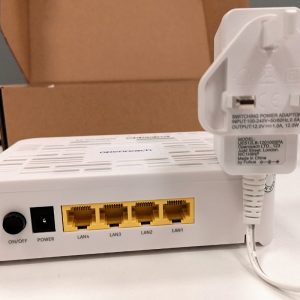

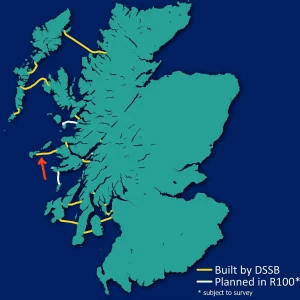

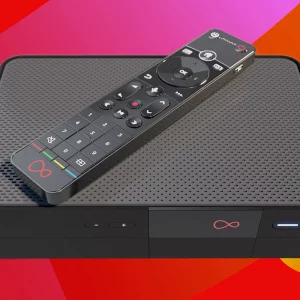
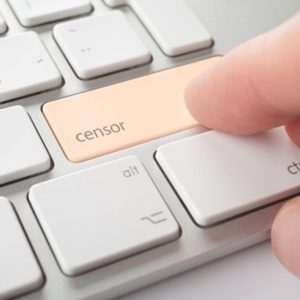


Cheap BIG ISPs for 100Mbps+
150,000+ Customers | View More ISPs
Cheapest ISPs for 100Mbps+
Modest Availability | View More ISPs
Latest UK ISP News
Helpful ISP Guides and Tips
Sponsored Links
The Top 15 Category Tags
- FTTP (6713)
- BT (3862)
- Politics (3032)
- Business (2731)
- Openreach (2626)
- Building Digital UK (2486)
- Mobile Broadband (2433)
- FTTC (2131)
- Statistics (2098)
- 4G (2061)
- Virgin Media (1997)
- Ofcom Regulation (1761)
- 5G (1691)
- Fibre Optic (1586)
- Wireless Internet (1581)
Sponsored
Copyright © 1999 to Present - ISPreview.co.uk - All Rights Reserved - Terms , Privacy and Cookie Policy , Links , Website Rules








